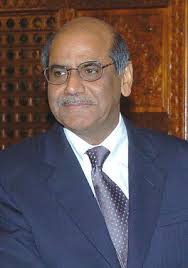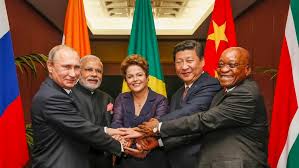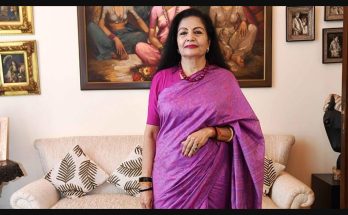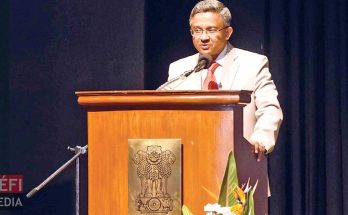Amid the growing salience of South-South cooperation in the evolving world order, RIS, a New Delhi-based think tank, is hosting an international conference (March 10-11) to map the way forward for developmental cooperation among southern countries.
In this wide-ranging interview with Manish Chand, Editor-in-Chief, India Writes Network (www.indiawrites.org), Mr Shyam Saran, Chairman RIS and former Foreign Secretary of India, spoke about distinctive features of SSC and its multiple ramifications for global governance architecture and the paradigm of developmental cooperation.
Q. In this evolving world order, with the South acquiring greater economic weight, how do you look at South-South cooperation in the twenty first century landscape?
A. First of all, let me make the point as far as India is concerned South-South cooperation is not a new concept. In fact right since India’s independence, the kind of philosophy that Pandit Nehru put forward was that even if India’s own resources are very modest, it has an international responsibility to share those modest resources with other sister developing countries and that is the reason why we had, in very very early years, fairly significant development cooperation programme with some of our neighbouring countries, with some of the African countries and that tradition has continued.
What has happened in recent years is that because India is now one of the emerging economies it has more resources than it had before. It has more technical capabilities than it has had before. There is a greater scope for engaging in development cooperation with other developing countries and that is why not only for India but some of the other emerging economies like China, for example, or Brazil or even South Africa, you see a greater salience of development cooperation emerging from these countries.
Q. You are talking about the growing South-South developmental cooperation. Is it an alternative to the North-South Cooperation? In what ways is it different from the mechanisms and ideology of the North-South cooperation?
A. Well, first of all, it is certainly not a substitute. I would say it is not even a kind of a supplement to North-South cooperation, but each has its own dynamic, each has its own philosophy behind it. So, for example, whereas with the OECD countries they look upon their assistance to developing countries in the form of a donor-client relationship — there is a recipient and there is somebody who is giving the funding. In the case of South-South cooperation, the approach is very different. The approach is that, this is a partnership, it is not a donor-client relationship. It is a partnership between equals and therefore whenever we engage in cooperation with other developing countries we follow their priorities. What is it they want to lay stress upon? And in the case of India particularly, there is a very big focus on capacity building. Because the idea is that through that development cooperation in fact you create higher and higher level of economic and commercial cooperation with those countries. So, the way we look at development cooperation and the way the North looks at development cooperation, these are very different approaches to this particular subject.
Q. Is there a South way of doing things? Is there a South world view? Is there a South way of conducting international relations?
A. There is a southern way, that is why this conference is being held. In fact to try and get people to understand that there is an alternative narrative. There is an alternative way of approaching issues of development cooperation which is based on norms which are somewhat different from the OECD norms. This is not to say that there is no opportunity for us to be able to work together with the north, to deliver development cooperation to southern countries. For example, India itself sometimes works together with other aid agencies for capacity building, like training exercises are held in India, but they are partly financed by some of the western donor countries. We sometimes work with the UN. For example, with the FAO we work together to deliver sometimes food supplies to other countries. So, there are ways in which we are also willing to cooperate with the north. So, it is not this is rejected. But, also what we want to point out is that, if we are now trying to evolve a new international consensus on development cooperation which is much more in keeping with what is a more diffused political order, a democratic political order. If we want to have development cooperation with which is geared to achieving what we have set out for ourselves in the sustainable development goals, then this cooperation and the manner in which we approach this cooperation could be a very important contribution to the whole international debate about cooperation.
Q. Talking about India’s foreign policy, within the strategic community there are sceptical voices, cynical voices that South-South is more a cliché, it goes back to a bygone era. What kind of salience does it have in the present context (talking about India)? How is India planning to take a lead to chaperone this movement to greater heights?
A. Well, let me say that this kind of perception is completely misplaced to say that somehow this is no longer relevant; in fact, it is more relevant today than before. Why is it more relevant? It is more relevant because if we are looking at the kind of challenges that we are facing, both developed as well as developing countries. The fact is that it is difficult to conceive of dealing with any global challenge whether it is public health, whether it is food security or energy security, it is very difficult to think of national solutions or to even think about regional solutions you have to have a global collaborative approach for these issues. Now, in that context there is place for North-South cooperation, but there is also place for South-South cooperation.
We have something to bring to the table and with our partner countries the common challenges we are facing, for example climate change, energy security, we have adopted very ambitious sustainable development goals, very wide ranging goals. Now, how you are going to be able to meet those goals unless there is that cooperation at a time when due to the global financial economic crisis, funds which could have come from the north have diminished, there is no doubt about that. The scale has diminished. So, there has to be a greater salience for what we can do amongst ourselves as developing countries.
Q. The economic and developmental cooperation among the Southern countries has moved quite well. On that front, there has been much progress. But what about the strategic component? How can South-South cooperation acquire greater strategic content and traction?
A. As I said, there is a different approach to the said cooperation. So, when we are looking at cooperation within the countries of the south we are really looking at a partnership. So many people for example criticize the emerging countries. They say, oh, they are driven by commercial motivation. Yes, we are driven by commercial motivation, because our idea is that through this cooperation we create greater opportunities for commercial exchanges or investment opportunities. So, we have no problem with such development cooperation being projected as driven by economic or commercial motives. This is not charity. We are not looking at charity, we are looking at, as I said a very equal partnership.
Now, as I mentioned the way in which we do this cooperation is very different from the OECD. For example, in the OECD, there is much more stress say on the political conditionalities. There is much more stress on some kind of a scrutiny, international scrutiny, on how the funds are being used, there is an evaluation process, sometimes very intrusive in character. Sometimes, it is completely bypassing the government of the country with which such cooperation is taking place, our approach is very different.
We never try to bypass the government of the country with which we are cooperating. When we do evaluation, we do evaluation together, not some other agency coming and deciding whether or not we have performed or not and very rarely is there any political conditionality. So, there is a different way of approaching these issues which, to our mind, is more democratic, which is much more respectful of the national sovereignty of the countries with whom we are cooperating and it has been our experience that perhaps it delivers more than just the donor-client relationship that we see with OECD.
Q. Is there a South way of doing things? Is there a South world view? Is there a South way of conducting international relations?
A. There is a southern way; that is why this conference is being held. In fact to try and get people to understand that there is an alternative narrative. There is an alternative way of approaching issues of development cooperation which is based on norms which are somewhat different from the OECD norms. This is not to say that there is no opportunity for us to be able to work together with the north, to deliver development cooperation to southern countries. For example, India itself sometimes works together with other aid agencies for capacity building, like training exercises are held in India, but they are partly financed by some of the western donor countries. We sometimes work with the UN. For example, with the FAO we work together to deliver sometimes food supplies to other countries. So, there are ways in which we are also willing to cooperate with the north. So, it is not this is rejected. But, also what we want to point out is that, if we are now trying to evolve a new international consensus on development cooperation which is much more in keeping with what is a more diffused political order, a democratic political order. If we want to have development cooperation with which is geared to achieving what we have set out for ourselves in the sustainable development goals, then this cooperation and the manner in which we approach this cooperation could be a very important contribution to the whole international debate about cooperation.
Q.What about the proliferation or the emergence of new pluri-lateral and multilateral groupings like IBSA and BRICS? Does it all fit into the larger paradigm of south-south cooperation?
A. It fits in very well. If you take IBSA for example, India, Brazil and South Africa have been working together to deliver development cooperation in some African countries. So, it is very much in line with what we have in mind. In fact, that is an example of what the countries of the south particularly the emerging economies are able to do in delivering significant development assistance to other sister developing countries. So whether it is IBSA, whether it is even BRICS, now you have the Asian Infrastructure Investment Bank (AIIB). We certainly look upon our participation in that bank as an additional channel of delivering, funding, cooperation to lot of the developing countries in Asia.
So, some of the new forms of cooperation which are coming up, some of the new institutions which are coming up, these are not a substitute for what we already have say with the IMF, the World Bank or the ADB but if there are additional means of giving assistance to other developing countries, why should we not explore them. And as I said before, there is also a willingness to see how we can create opportunities, for the north and the emerging countries to work together to do a better job of delivering development cooperation to other developing countries.
Q. How do you look at the adversarial instructions or hegemony within the south, the southern hegemons within the larger sphere of developing countries?
A. I completely reject the idea that there are southern hegemons. It is true that there is a diversity within the southern countries. There are countries which are relatively more developed, there are countries which are relatively less developed. That is something which is a reality. But I think what you have to see is that, certainly the major emerging economies and in that context I mentioned China, India itself, South Africa, Brazil, but there are others also, Turkey for example, Mexico for example, these are also in the ranks of the emerging economies. They have not large resources, but they have significant resources. They have also very importantly technical capabilities. They have technology which is much more relevant to other developing countries. Now, if they are able to in fact marshall their resources together and be able to scale up the assistance they are able to give to other developing countries, why should that be regarded as hegemonistic? That should be welcomed by everyone.
Q. Looking ahead, what are the key challenges of South-South cooperation? And what are the two or three areas where we are going to see a significant upsurge or major breakthroughs or significant advancement?
A.I think one of the issues that we will have to look at is, what is the manner in which the major southern economies are able to in fact strengthen the cooperation amongst themselves? That is right now much of South-South cooperation is on a bilateral basis. India, for example, has development cooperation relations with many African countries. But, we have not yet been able to fashion an arrangement, whereby while we are doing this bilaterally we also create opportunities for major economies to work together to scale up their resources, to give much more effective, that is one aspect. That is one aspect which I’m sure this conference would be focusing upon.
Secondly, as I mentioned to you OECD has certain norms with regard to delivering assistance. I mentioned to you that our philosophy is different. Is it possible for both the emerging economies plus their partners in the south to be able to develop certain new norms with regard to development cooperation? This is very important.
Thirdly, I think also to consider the issue of evaluation. Do the countries of the south have some consensus over how the effectiveness of such assistance is going to be evaluated? Because we don’t want to accept the evaluation criteria of the north in toto. There may be some elements which are useful to us, we will certainly adopt them. For example, the World Bank has certain criteria, may be some of those criteria are also relevant here. But given the difference in approach we have, are there ways in which we can work together? Both the source countries and as well as the countries which are receiving development assistance can be worked together to come up with a new set of norms which is more in keeping with the philosophy that we have.
Author Profile
- India Writes Network (www.indiawrites.org) is an emerging think tank and a media-publishing company focused on international affairs & the India Story. Centre for Global India Insights is the research arm of India Writes Network. To subscribe to India and the World, write to editor@indiawrites.org. A venture of TGII Media Private Limited, a leading media, publishing and consultancy company, IWN has carved a niche for balanced and exhaustive reporting and analysis of international affairs. Eminent personalities, politicians, diplomats, authors, strategy gurus and news-makers have contributed to India Writes Network, as also “India and the World,” a magazine focused on global affairs.
Latest entries
 DiplomacyApril 10, 2024Diplomat-author Lakshmi Puri pitches for women power at LSR
DiplomacyApril 10, 2024Diplomat-author Lakshmi Puri pitches for women power at LSR India and the WorldApril 6, 2024UN envoy pitches to take India’s solutions to the world stage
India and the WorldApril 6, 2024UN envoy pitches to take India’s solutions to the world stage CultureApril 5, 2024Youth in Diplomacy: Making it Matter with LSR Model UN 2024
CultureApril 5, 2024Youth in Diplomacy: Making it Matter with LSR Model UN 2024 India and the WorldMarch 28, 2024India to China: Normalization of troops deployment imperative for restoring ties
India and the WorldMarch 28, 2024India to China: Normalization of troops deployment imperative for restoring ties










